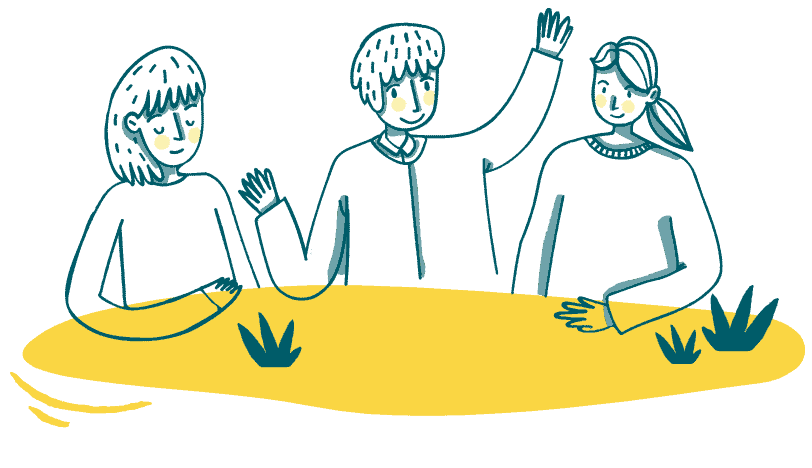We offer Buddhist funeral services to suit your situation.

Buddhist Funeral Services
Prices Start From £995
Unlike many funeral services which tend to focus on the deceased’s passage into the afterlife, Buddhist funerals mostly reflect the idea of reincarnation through the cycle of life, known as samsara. Consequently, Buddhist funerals are not very often sombre affairs although mourners are likely to attend and sometimes to be suffering from grief. At Newrest Funerals, our dedicated and caring team is here to help you arrange a Buddhist funeral service that will help you to celebrate the life of the deceased as well as to mark his or her passing in an appropriate way.
As well as helping many people to arrange the funeral of a Buddhist friend or relative after they have died, we also offer pre-payment plans. With such a plan, you can arrange all of the elements you’d like of a Buddhist funeral for yourself before you pass on. This often gives Buddhists in the UK the reassurance they are seeking that they will not receive a standard or religious funeral that falls outside of their beliefs once they’ve gone. If that is something you’d like, then we are ready to hear from you. The lines are open every day of the year.
Find Out More About Our Available Funeral Plans
Speak to one of our funeral planning specialists today!
What Should You Expect of Buddhist Funeral Services?

In many parts of the world, Buddhist funerals occur at a monastery. In the UK, we can arrange a funeral for you in your home or at a suitable alternative venue where traditional funeral rites will be observed. We will be able to help you find a suitable officiator, too, usually a Buddhist who will lead sermons as well as chants or sutras on your behalf. We’ll also help you to find a funeral director who has experience with Buddhist services, for example, one who can supply a simple, traditional casket.
At Newrest Funerals, we’ll also discuss all of the other options you might like to consider, such as whether to include an image of the Buddha alongside that of the deceased and whether a funeral cortège will be appropriate in your circumstances. We can also help you with other traditional elements of Buddhist funeral services, such as the playing of gongs, the burning of incense and whether or not flowers or fruit will be offered or if charitable donations will be asked for in place of them. There are many aspects of a modern Buddhist funeral to consider these days including how traditional or otherwise the service will be prior to the cremation of the body. That’s just one of the reasons why our expertise in this field is so useful to draw upon.
In addition to our knowledge in Buddhist funeral services, we also have expertise in Christian and Muslim funerals. We can guide you through the traditional customs and rituals associated with these funeral services, such as washing and shrouding the body, holding funeral prayers, and ensuring a timely burial according to religious beliefs. Our compassionate team is here to provide support and assistance during this difficult time, and to help you honor your loved one in a meaningful way.
Why Select Newrest Funerals For Your Buddhist Funeral Plans?
Our approach means that you will get the sort of funeral you want for yourself or your recently departed loved one. We work with compassion to ensure that all of the elements of a Buddhist funeral service are considered so that you make informed decisions about what you’d like to include and what you’d like to leave out. We can also help if you’d like to arrange further services in the mourning period following the funeral itself.
How Do Buddhists Bury Their Dead?
Buddhism teaches the principle of impermanence – everything is changing; nothing lasts forever. It also regards life, death, and incarnation as a natural life cycle. When someone passes on, it’s believed that their soul is in transition. The body should remain still and undisturbed for some hours.
Buddhist funerals occur in the deceased’s home, a funeral home, or a Buddhist monastery. The activities that follow are subject to the religious tradition of the family. Traditionally, Buddhists choose an odd number of days to honour the dead, which could be the third, fifth, or seventh day.
What Do Buddhists Do When Someone Dies?
In Buddhism, the body is regarded as a vessel for the soul, and death is the end of the body but the beginning of the soul’s journey. The soul goes in search of a new body, which leads to rebirth.
When a Buddhist is dying, friends and family members gather to pray and prepare the body and soul for a peaceful transition. Then, they invite a monk to chant verses encouraging the dying person to reflect on their good deeds and detach themselves from earthly attractions. This act is believed to free the soul once the person passes.
What Do You Wear to a Buddhist Funeral?
Due to many different interpretations of the Buddhist faith, the proper funeral attire may vary a bit depending on the culture and location of the rules being practised.
The most widespread belief indicates that family members should wear white and adorn themselves with a headband or an armband, while the mourners should wear black.
However, with Japanese Buddhists, it could be the opposite – family members wear black, and friends wear white.
The family members may also prefer a different colour, depending on their nationality.
What Not to Wear to a Buddhist Funeral?
The Buddhist funeral should occur in a calm and peaceful manner. Anything that would stand out and disturb that peace goes against the Buddhist’s funeral etiquette.
Hence, you shouldn’t wear:
-
- Expensive clothes;
- Bright colours;
- Flashy jewellery.
The above is seen as a display of wealth, which goes against Buddhist rules.
Generally, avoid showing up in jeans, short-sleeved shirts, and trainers (revealing clothes is inappropriate funeral attire, no matter the religion).
Why Are Buddhist Funerals 49 Days?
Since the symbolism of Buddhism is mostly related to numbers, in the case of death, it’s 49. This number represents the number of days the soul of the deceased needs to purify and get the new form. Finally, on the 49th day, a person is born again (reincarnated).
Buddhists believe that the decedents begin a new life after passing away. And death is just a moment when their karmic energy from the previous life collects and determines their rebirth.
The mourning period is essential for the decedent’s family and loved ones. It’s when they participate to ’help’ the deceased’s soul start a new life. Also, they don’t go to festive and happy events but mourn in silence.
Every seven days during the 49 days of mourning, the family prays and performs rituals to honour the deceased. Anyone who comes to express their condolences can join, too.


